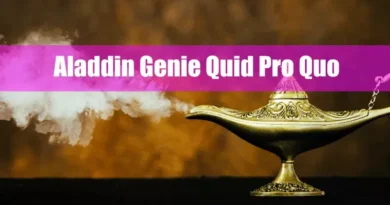When Did We Start Hearing “No Quid Pro Quo”?
The phrase “no quid pro quo” gained widespread attention in 2019 during the impeachment inquiry into President Donald Trump. It emerged after U.S. diplomats William Taylor and Gordon Sondland discussed U.S. military aid to Ukraine and its possible link to political investigations. Sondland, initially echoing Trump’s denial of a quid pro quo, later testified that military aid was indeed conditioned on Ukraine publicly announcing investigations into Trump’s political rivals.
The phrase highlights concerns about how political corruption is legally defined, particularly in relation to explicit quid pro quo arrangements, which were central to the Trump impeachment inquiry. Since Chief Justice John Roberts’ tenure began in 2005, the U.S. Supreme Court has, in several rulings, narrowed the definition of political corruption, focusing primarily on explicit quid pro quo transactions, which has led some to argue that indirect forms of corruption are not sufficiently addressed by current legal standards.
Takeaways
| Key Points |
|---|
| Under Chief Justice John Roberts, the U.S. Supreme Court has narrowed the definition of political corruption, shifting legal standards in ways that critics argue have legitimized institutional corruption, particularly during Donald Trump’s presidency. |
| The phrase “no quid pro quo” gained prominence during the Trump-Ukraine scandal when officials like Gordon Sondland used it as a defense, though his later testimony acknowledged conditions may have been placed on U.S. security aid. |
| The Roberts Court has played a significant role in reshaping corruption laws, as seen in Citizens United v. FEC, which equated political donations with free speech, allowing corporations and wealthy donors to exert greater influence. |
| Further, the Court’s 2016 decision in McDonnell v. United States overturned a corruption conviction by ruling that favors given without explicit proof of a quid pro quo do not constitute corruption, setting a precedent that weakened prosecution efforts. |
| This legal landscape has fueled public distrust, as Trump’s rise was partly driven by voter frustration with elite corruption, yet the system remains vulnerable to financial manipulation without major reforms. |
Corruption Boundaries Under Chief Justice Roberts
Since John Roberts became Chief Justice of the U.S. Supreme Court in 2005, the Court has shifted its approach to political corruption, narrowing the scope of what is considered improper influence in the political system. Critics argue that this trend has contributed to a normalization of corruption within the U.S. political system, particularly evident during Donald Trump’s presidency, which has been characterized by allegations of personal profiteering and questionable political conduct.
The phrase “no quid pro quo,” akin to “no collusion,” has emerged as a symbol of this legal and political shift—an issue far more complex and dangerous than it initially appears. This situation reflects ongoing debates about the adequacy of current legal standards to combat corruption effectively, suggesting a broader effort to legitimize institutional corruption in the political sphere.
“No Quid Pro Quo”: Its Rise in the Trump-Ukraine Scandal

The phrase “no quid pro quo” became a central point of focus during the Trump-Ukraine scandal when William Taylor, the top U.S. diplomat in Ukraine, raised concerns that U.S. security aid to Ukraine might be conditioned on the country conducting politically motivated investigations. In response, Gordon Sondland, the U.S. ambassador to the E.U., conveyed President Trump’s message, stating, “The President has been crystal clear: no quid pro quo.” However, this statement appeared less as a straightforward denial and more as an expression of the President’s narrative that others in the administration were expected to adopt.
As the impeachment hearings unfolded, Sondland’s assertion that there was “no quid pro quo” became a key talking point used by the administration to deflect accusations of misconduct. Nevertheless, Sondland later revised his testimony, acknowledging that conditions were likely placed on the release of security aid, further complicating the claim.
Redefining Corruption: The Supreme Court’s Role
The importance of this phrase lies in its connection to the legal framework created by the U.S. Supreme Court under Roberts. Since 2005, the Court has increasingly worked to redefine what constitutes political corruption. The traditional understanding of corruption—public officials receiving money or gifts in exchange for favors—has been undermined by the Roberts Court.
With rulings such as Citizens United v. Federal Election Commission, the Court redefined political donations and spending as protected free speech under the First Amendment. The majority opinion in Citizens United went as far as to claim that “independent expenditures, including those made by corporations, do not give rise to corruption or the appearance of corruption.”
Normalizing the Exchange of Money for Political Influence
The Supreme Court’s rulings, particularly under the leadership of Chief Justice Roberts, have created a legal environment where political contributions are considered a form of free speech. In Citizens United v. FEC, the Court ruled that independent political expenditures, including by corporations, do not give rise to corruption, allowing for unlimited political donations provided they are not coordinated directly with campaigns. This decision has significantly expanded the influence of wealthy donors and corporations in politics, leading to concerns about the erosion of traditional corruption safeguards. While this ruling redefined the boundaries of political influence, it did not directly encourage politicians to respond to donor interests in an overt quid pro quo fashion. Rather, the decision has raised concerns about the broader implications of financial influence in politics.
The Quid Pro Quo Standard: Narrowing the Scope of Corruption
The concept of quid pro quo as the legal standard for corruption was solidified by U.S. courts, especially in cases involving political figures. This standard focuses on direct exchanges of favors for money or other tangible benefits, which limits the scope of what can be prosecuted under corruption laws. This narrow definition excludes broader forms of favoritism or conflicts of interest unless there’s explicit proof of an agreement for an official act in exchange for personal gain.
In the case of Dick Cheney, while there were ethical concerns about Halliburton—a company he once led—receiving lucrative government contracts during the Iraq war, no quid pro quo was proven in court. Cheney’s financial relationship with Halliburton, including a multi-million-dollar payout when he left the company to become Vice President, raised eyebrows, but no legal action was taken under U.S. law because it didn’t meet the strict criteria of quid pro quo corruption. Additionally, Halliburton was involved in separate bribery allegations overseas, but these were settled outside of court without direct implications for Cheney.
The 2016 Roberts Court Decision: Further Weakening Corruption Prosecutions
In 2016, the Roberts Court made it even harder to prosecute corruption. Bob McDonnell, former governor of Virginia, had been convicted of taking $175,000 in gifts from a businessman in exchange for favors. However, the Supreme Court overturned his conviction, with Roberts writing that public officials regularly engage with constituents and arrange meetings on their behalf. The decision essentially set a precedent that favors given without explicit proof of a quid pro quo would not be considered corruption.
Trump, “No Quid Pro Quo,” and the Legal Landscape
During the Ukraine scandal, Trump repeatedly asserted “no quid pro quo” as a defense against accusations of leveraging military aid for political favors. Ambassador Gordon Sondland testified that while Trump directly told him to use the phrase “no quid pro quo” in relation to the Ukraine dealings, Sondland understood that military aid was implicitly tied to the investigations Trump sought. Although Trump denied wrongdoing, concerns about institutional corruption were raised as part of the broader impeachment inquiry into his administration’s dealings.
The Enduring Issue of Corruption in U.S. Politics
Corruption has contributed to widespread public disillusionment with politics. The perception of elite corruption and Trump’s anti-establishment rhetoric and promises to ‘drain the swamp’ contributed to his rise to power. His outsider status and attacks on political elites resonated with voters frustrated by what they saw as entrenched corruption in Washington. Legal loopholes allow wealthy individuals and corporations to manipulate the system, cementing a cycle of institutional corruption that is unlikely to be resolved without major legal reforms.
Citations
- Wikipedia contributors. (2024, September 28). First impeachment of Donald Trump. Wikipedia. https://en.wikipedia.org/wiki/First_impeachment_of_Donald_Trump
- McCarthy, J. K. B. (n.d.). Timeline: The Trump impeachment inquiry. @Politifact. https://www.politifact.com/article/2019/oct/03/timeline-trump-impeachment-inquiry/
- Beinhart, L. (2019, October 16). No quid pro quo’: How U.S. legalised corruption long before Trump. Al Jazeera. https://www.aljazeera.com/opinions/2019/10/16/no-quid-pro-quo-how-us-legalised-corruption-long-before-trump









